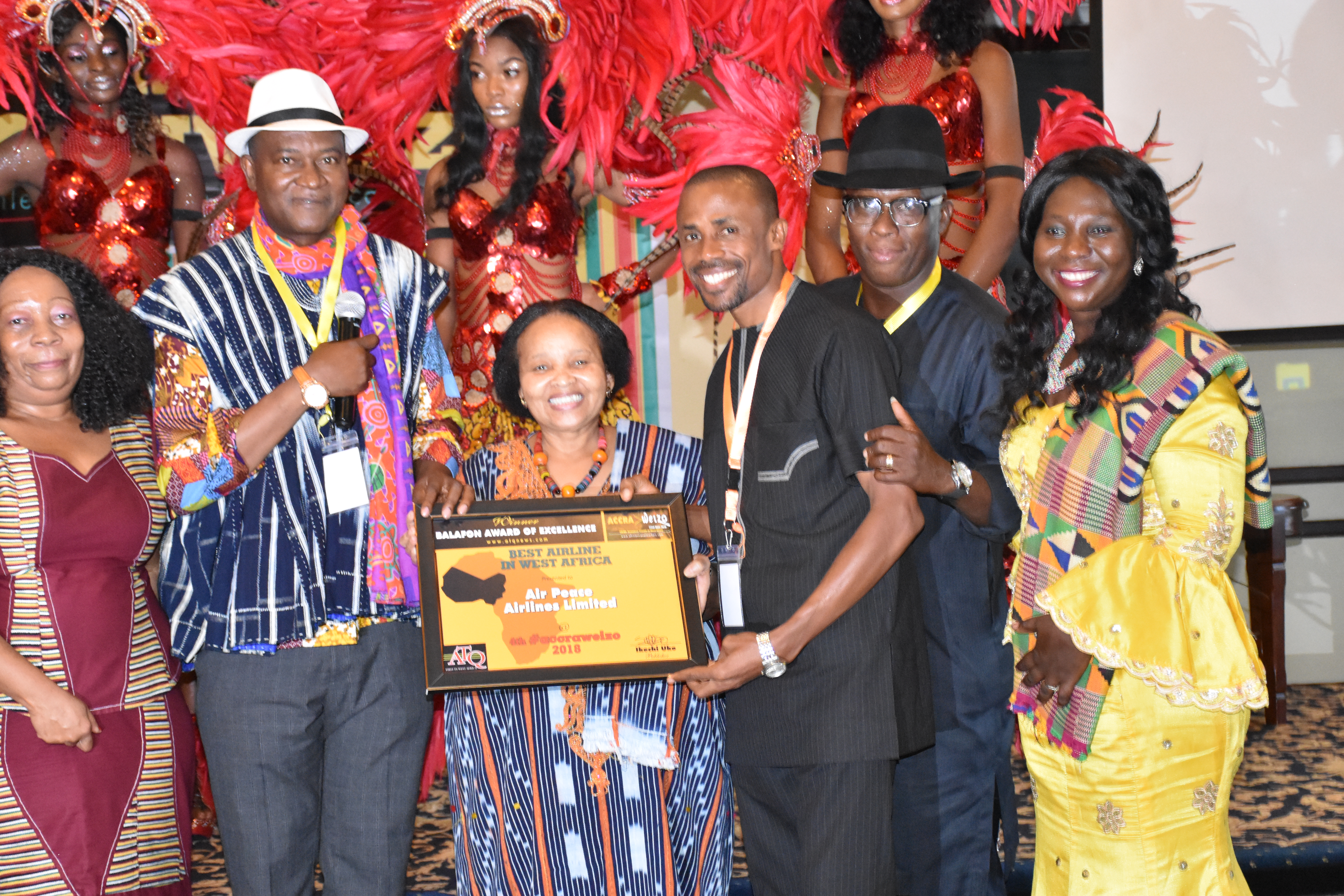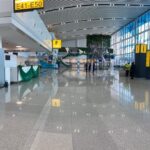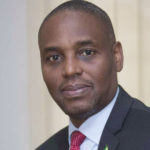
Travel expert and organiser of Akwaaba African Travel Market, Ambassador Ikechi Uko, spoke about how Nigeria could take advantage of its huge population and natural endowments to develop tourism and attract investors, like other countries in Africa.
In those days, the West Coast used to be lucrative for Nigerian airlines, during the era of Belview and Virgin Nigeria, but this time it seems Nigerians are losing the market. What do you think could be responsible for this?
Okay, I would not agree that Nigerians are losing the market. Nigerians still travel, maybe not in large numbers like before. Years back, we were the major entrepreneurs in West Africa, we supplied almost all the wealth that were distributed in West Africa. Now other people are also rich, and they can travel, but I don’t think we are losing the market. The only thing we have lost is that we have lost control of the aviation business in West Africa. There are dominant connectors of West Africa, Air Senegal, Air Cote d’lvoire, and ASKY, cover more of West Africa than any Nigerian airline. So aviation in West Africa now is not in the hands of Nigerians anymore.
But when you look at the market generally, because of our population, in terms of economic activities, we still play a major role in the market. But in aviation, we seem to be losing.
Do you see Nigerian airlines dominating the West Africa region in the future?
I don’t see any Nigerian airline that has a vision to dominate West Africa. I don’t see a plan by any Nigerian airline to be the major player in West Africa. I have not been told, I have not seen any. The ones that are already flying, the way they have aligned their business is beyond West Africa. So, until one comes that plans to be the king of West Africa, then we can start having discussions. We can’t be the hub, we are not the hub, there is no plan by any Nigerian airliner that I know to fly to every capital in West Africa. What I knew Ethiopian
What airlines do is that when any African country became independent, they try to connect a flight to that destination. So, there was a long-term plan to be the masters of Africa by Ethiopian Airlines and now it has benefited them. There is no Nigerian airline I know that had a plan to dominate West Africa. Maybe some of them planned it internally, but it has never been communicated publicly for outsiders like me to know that there is a plan to be the masters of West Africa.
Okay, but from all indications, Asky Airlines seem to have a long term plan to dominate West and Central Africa from the way they started, and the way they were growing. So what do you think about Asky airline?
That was an airline that was set up from the beginning with such a plan to be a Pan-African airline. And ASKY means African sky. So the vision is there, is captured in the name, is captured in everything they do. They fly to 28 destinations in 26 countries with only 14 aircraft. So from the beginning, that vision is very clear that we want to be the king of West and Central Africa. We want to be the major airline in West and Central Africa. And within five years, they achieved that. Now they are connecting East Africa; they are connecting South Africa. They are now going to go to France. But they stayed, more than 10 years consolidating on West and Central Africa. Then they started South Africa maybe by the 10th year. Then they started Nairobi by the 10th year. And they are now saying, OK, France. Then after that, we will connect North Africa. So they have spent 10 years consolidating their operations in West and Central Africa. And today they connect almost every capital city in West Africa.
And what is surprising is that they are operating from a small country. They don’t have domestic markets. So they primed to go international from there but they started slowly, small, planned well.

Do you see any Nigerian airline following that kind of trend?
Okay, today we are here (in Kenya) because of Jambo Jets. Jambo Jets owns 52 per cent of the domestic market in Kenya. Jambo Jets is a subsidiary of Kenya Airways, actually doing better as it were than its big brother (Kenya Airways). So, a Nigerian airline could also have a spin-off that would dominate the local markets; just like Jambo Jet and now create an international flight service and have an international link with big airlines. So the small airline will mop up people fromvarious airports and bring them to Nairobi for the big airlines; especially Kenya Airways and other to take them to international designations. Jambo Jet do 10 flights a day between Nairobi and Mombasa, and do maybe 10 flights to Kisumu. So they mop up everything. So this is a proper hub and spoke operation that is working very well. So it’s also possible that a Nigerian airline, which I thought Air Peace was trying to do with the City Hopper. From my study of the data provided by NCAA, Air Peace international operations have less delay and less complaints and has actually done well compared to its local operation. So the City Hopper was a good idea, but it did not go beyond that. And for Jambo Jets, they have a different board. They run as an independent airline, and that is why they could actually go and do a partnership with ASKY when Kenya Airways also flies Nairobi to West Africa. So that shows you that though they are owned by Kenya Airways, they are also independent in what they do.
How do you see the partnership between Jambo Jet and ASKY in terms of connection between West and East Africa?
It is like two masters coming together. ASKY has mastered West and Central Africa. Jambo Jet has mastered the whole of Kenya and is also extending it to East Africa. So ASKY brings the network. Asky brings the whole of their 28 destinations. And Jambo Jet brings 11 of their destinations. That is 39 destinations. So Asky can reach more destinations in Kenya. Jambo Jet passengers can reach more destinations in West Africa. So it is a partnership that benefits both sides. No one loses.
Do you see a possibility where Nigerians will begin to take advantage of Asky connection to come to East Africa and enjoy the benefits of wildlife in Kenya and the East Africans visiting West Africa for holidays and in terms of tourism?
Yes. About 35,000 Nigerians travelled to Kenya in 2023. The Kenyan tourism board wants to double that number. And to double that number, Nigerians go to Kenya for two things: MICE, which is meetings, incentives, conferences and exhibitions, and the second is for leisure. And the leisure capital of Kenya is Mombasa. So now, ASKY brings you from West Africa the Jambo Jet can take you anywhere you want to go in Kenya. Now we are doing Mombasa, we are doing Nairobi.
Do you envision a future high load factor on the West Africa, East Africa route via Lome?
I am seeing more Africans, remember I am Pan-African first of all; I am seeing more Africans travel within Africa. So the combination of more African destinations opens up Africa for Africans. The same way someone in Mombasa wants to go to Bangui, wants to go to Conakry, wants to go to a destination that has Asky covers. So, instead of flying just from here, Mombasa, it takes Jambo Jet to Nairobi and he is there. So, it helps in the vision of opening up Africa for more Africans.
Africans no longer travel to African countries unlike in the past. Today everybody wants to visit the West, the United States and Europe. How do you see the market now?
More Africans are discovering Africa. But we still have that colonial mentality that the best things are outside Africa. However, there is a new generation who do hiking, who do beach-hogging, who are into all this adventure and the best adventures are in Africa. The generation that is coming and moving into the travel space and looking for adventures and experience, and that is not what you get outside Africa. So for someone who has worked for the past 30 years to promote Africa as a destination for Africa, I would say I am happy with the way the young Africans are seeing Africa. They are seeing Africa as a continent. And thanks to the football competitions, AFCON and the rest of them, more of them are getting to know other countries in Africa. My generation grew up only knowing our country and Europe. But there is a whole lot of changes that have happened in Africa with the Internet, with all these fights on Twitter and the rest of them. Those things are positive. Nigeria has attacked Kenya, Kenya has attacked Uganda. We get to know each other’s countries. Because the problem in Africa is that you fear what you don’t know. And what you don’t know is usually what you have never experienced.
Kenya, Egypt, South Africa and others have developed their tourism industry. How can Nigeria develop her tourism industry and what are the barriers?
The first barrier with Nigeria is Visa. Our government has not figured out how to make Nigeria a destination. They have never asked people like us, so that we could tell them that visa on arrival is the easiest way to open up for all Africans. The government issued a statement in 2018-2019, saying Nigeria would issue visa on arrival. That was done badly, I can tell you. It was not done very well. Even at that, as we are now mastering it and improving on it, government has just added first $90 biometric charge.
So, if your visa was $25 before, it is now $100 +. Then this year, government has now changed the biometric to $190. There is no visa you pay for coming to Nigeria that is less than $200. Why would you be charging fellow Africans $200 in this economy just for visa? That is terrible. That’s one. Two, Nigeria is secure in most of the places the tourists will go to. We have not had issues of tourists having problems in Lagos. We have not had issues of people having problems in Enugu, in Uyo, in Port Harcourt, in Abuja, right? Even in Kano. So for most people who are in tourism business, you must be guided. Don’t just pack your bag and say you are going to Kutuwenchi for tourism. Then you turn out and say Nigeria is not secure. No, you are not wise. There is a hiking epidemic happening in Nigeria now. Every weekend or there about, more than 10,000 hikers are moving around Nigeria. There is never a sad story. The only sad one we had was a guy who drowned in the waterfall in Nassarawa two years ago. But these hikers are moving because they do due diligence, they take local guides.
But for people who don’t know how tourism works, you say, oh, it’s unsafe. Why? You carried your bag without even talking to the local guide. No. We are in Mombasa now. There is a local guide, more than one, who knows the environment, who takes us around. So if you walk with a guide in Nigeria, you can go anywhere. As I am talking to you now, last week, some of my mentees went to Yobe to do the desert. You know what I mean? Went to all the places in North East. Once you have a local guide, the local guide will take you around. So, yes, there are seasons of insecurity. There are spots of banditry. But once a local is involved you are good to go. You have to have a local security. You go with the local guides. Do not go on a tourism adventure without a local guide. So when people say where would those people (tourists) go, is ignorance. And the problem is that the people who don’t know insist they want to talk. That is the unfortunate thing in our business. The ignorant people are the loudest and insist they want to talk. But tourism is going on in Nigeria. Domestic tourism is having
What do you make of the presentation that the Kenya Tourism Board did the other day?
East Africa has done a paradigm shift, which is the best thing that is happening to Africa. In the past they never had a budget to market Kenya in Africa. They were targeting non-African tourists, the same for Uganda. But now, like the lady said, there is an effort by Kenya to bring more Africans to visit Kenya. And that to me is one of the greatest news I have heard. So, South Africa has an African office marketing South Africa to Africans. Kenya has an African office marketing Kenya to Africans. Uganda now markets Uganda to Africans. So there is a missing gap, when will Nigeria start marketing Nigeria to Africans? So the Kenya tourism board is intentional. From 17,000 Nigerians the year before, they had 35,000. Now they want to double it. And hopefully they can get 100,000. And that is the future of Africa.







